Belle (André Delvaux, 1973)
Nov
28

Belle (Adriana Bogdan) in front of her cabin on the moors. DPs: Ghislain Cloquet & Charles Van Damme.
GhislainCloquet
Les demoiselles de Rochefort [The Young Girls of Rochefort] (Jacques Demy, 1967)
APr
10
Siblings Day
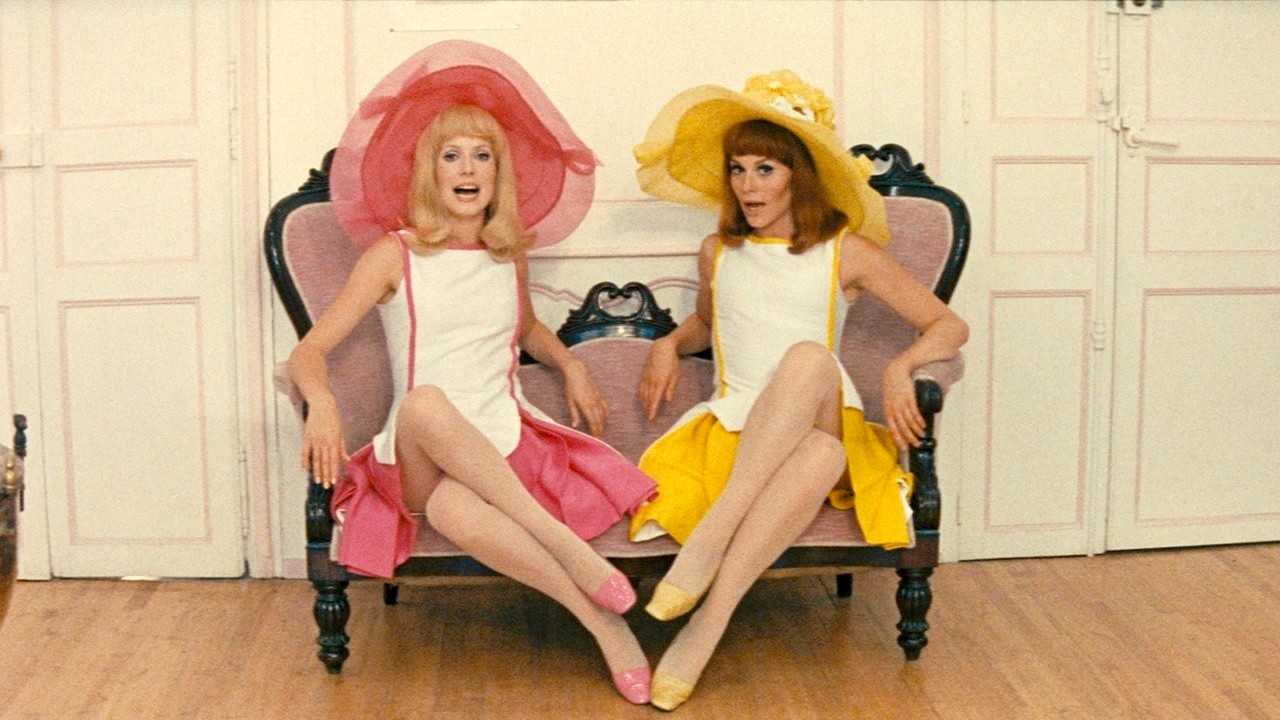
Sisters Delphine and Solange Garnier mid-song, played by real-world sisters Catherine Deneuve and Françoise Dorléac. DP: Ghislain Cloquet.
Siblings as main characters for Siblings Day (USA/Canada)
– Delphine & Solange
Un soir, un train [One Night, a Train] (André Delvaux, 1968)
Mar
18
André Delvaux
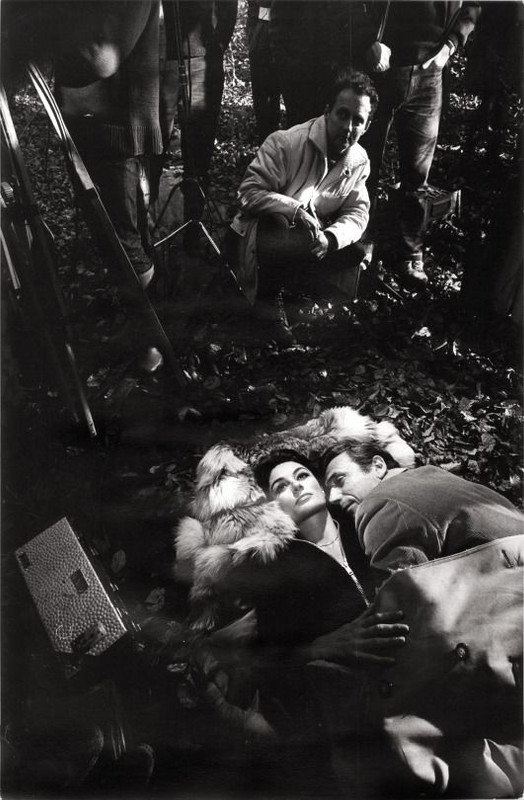
Anouk Aimée and Yves Montand in character on a leaf-strewn floor, his head resting on her chest, with director André Delvaux and others surrounding them. DP: Ghislain Cloquet.
A favourite film, director, or producer for Luc Besson's birthday (1959).
Having only seen three of Delvaux's films, I feel I can safely say his work is hypnotic, but not in the common sense. We see a world through both Delvaux's and his protagonists eyes, and experience their duality as one. This displacement is a recurring theme in Delvaux's work, the work of a man raised in one world and speaking the language of another, both worlds bearing the same name, Belgium.
This slow tear is also the theme is his best known film, De man die zijn haar kort liet knippen [The Man Who Had His Hair Cut Short] (1965), in which a schoolteacher loses himself after a pupil graduates. When we think we are firmly seated in Delvaux's universe, we fall back, like that moment just before sleep sets in. And again, in his tragically under-seen Belle from 1973. Now it's a poet who finds a woman living in a ramshackle hut in Belgium's peatland, her language an unknown. With only one main speaker, the duality forms in the poet's words, in his attempts to give her root.
And so do we, the viewers. We hang on to that root, Delvaux's, only to sink back into our own loss of words.
Le trou [The Hole / The Night Watch] (Jacques Becker, 1960)
Jun
25
care package

Butchering a care package – butter, sausage and other joys of life – for contraband. DP: Ghislain Cloquet.
“Hello. My friend Jacques Becker recreated a true story in all its detail. My story. It took place in 1947 at La Santé prison.”Le trou [The Hole / The Night Watch] (Jacques Becker, 1960)
Jun
19
International Box Day

The prisoners keep themselves occupied with making cardboard folding boxes. The second man from the right is the novel's author and real-world (ex-) inmate José Giovanni aka Jean Keraudy as Roland Darbant. DP: Ghislain Cloquet.
Inmates preoccupy themselves with making cardboard boxes. While working together, talking, gaining trust, plans for an escape unfold.
– Jean Keraudy as himself
Le trou is based on a real prison escape and introduced by one of the men involved, Jean Keraudy.
“An object dies when the living glance trained upon it disappears. And when we disappear, our objects will be confined to the place where we send black things: to the museum.” Les statues meurent aussi [Statues also Die] (Ghislain Cloquet, Chris Marker + Alain Resnais, 1953)
May
18
International Museum Day
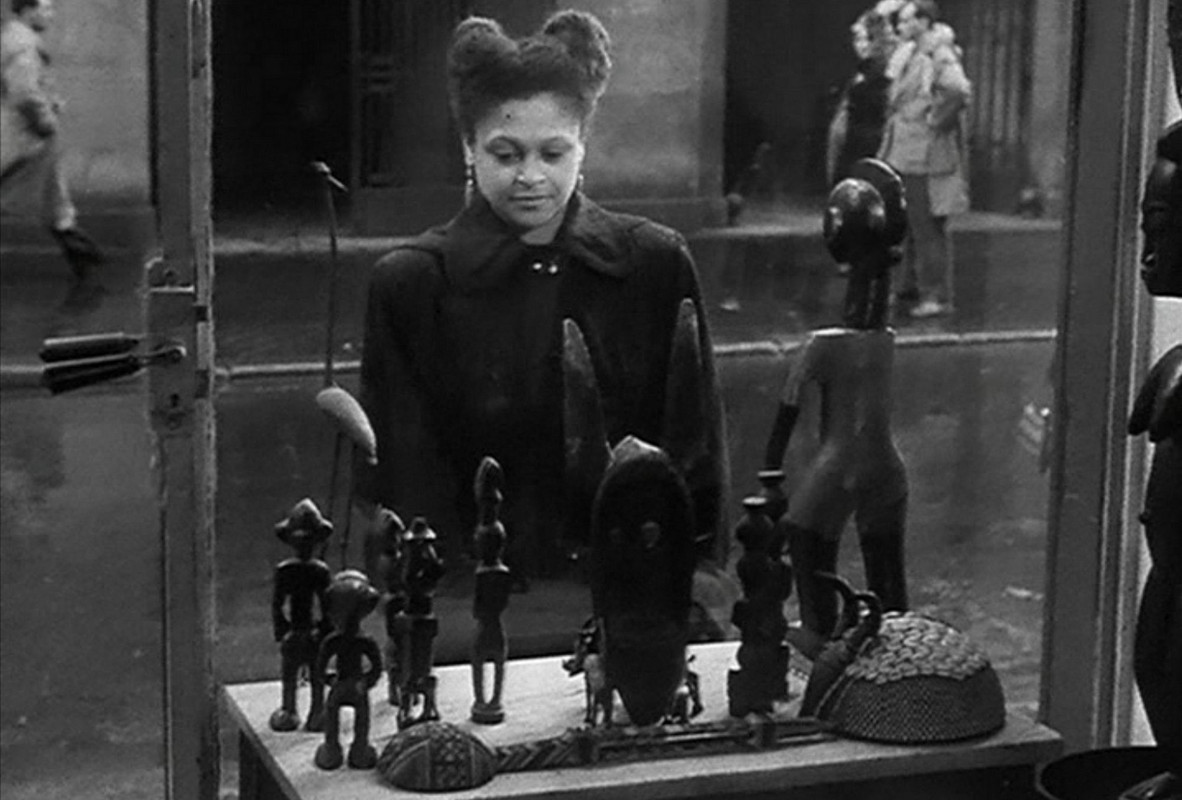
A Black African woman looks at objects of African origin – several statues, a mask, an object decorated with beadwork – in an antique store's window. Behind her white people pass by. It's raining. DP: Ghislain Cloquet.
Commissioned by the #PanAfrican literary magazine Présence Africaine to make a short film about African art, Chris Marker and his collaborator Alain Resnais – the latter still emboldened by his Van Gogh (1948) – were struck that unlike the Dutch painter's work, this #art was not on display in the Louvre or a similar cultural temple, but in the ethnological Musée de l'Homme.
– narrator
These works of “Negro” art that embody such a deep cultural and artistic significance for the creators and the people they are part of, were, within the boundaries of Western civilisation, merely things. The editing (Alain Resnais), photography (Ghislain Cloquet) and dialogue (Chris Marker) bring life to these works. Through these voices they speak to the viewer, escaping the institutes' walls.
This voice was enough for the CNC to censor Les statues meurent aussi; only the first third of the film, the segment that's not blatantly #AntiColonial, was to be watched. And to this day, the documentary still has not seen a restored, digital release.
“I'm the king of the silent pictures. I'm hiding out till talkies blow over.”Mickey One (Arthur Penn, 1965)
Apr
8
Step Into The Spotlight Day
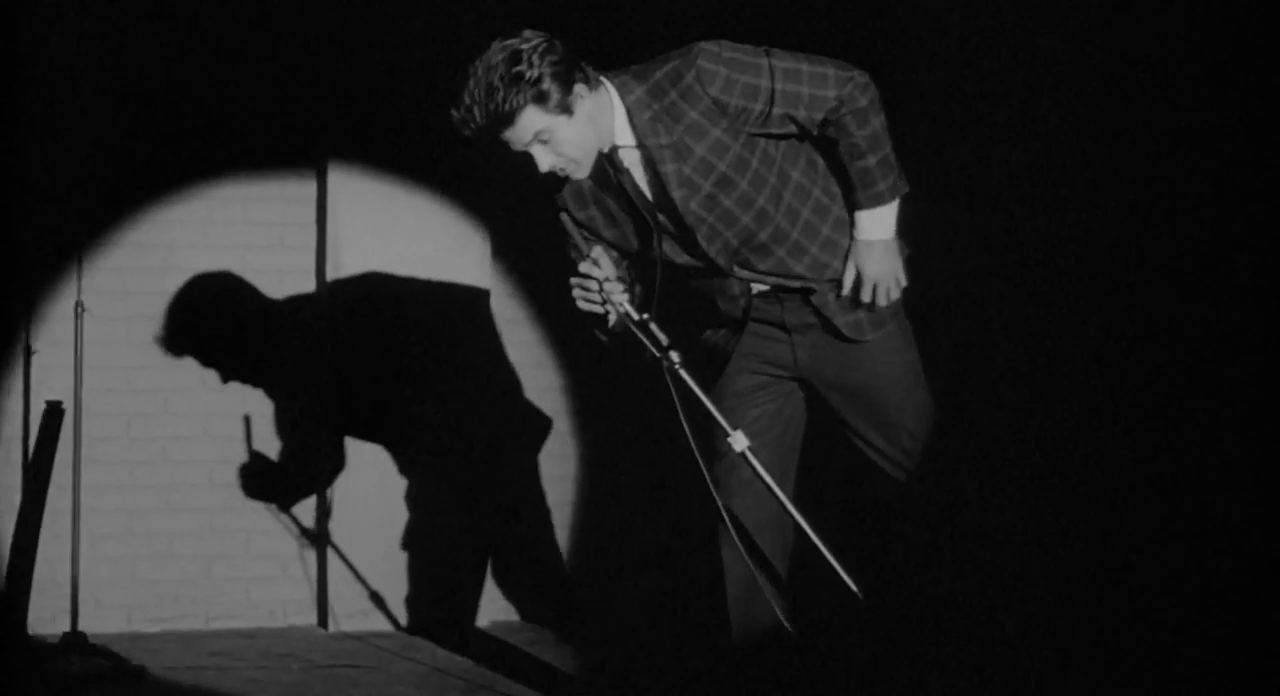
Mickey (Warren Beatty) bent over, holding a microphone with a bright spotlight aimed at him. DP: Ghislain Cloquet.
Warren Beatty plays Mickey, a #StandUpComedian who has it all, then gambles it all away. Well, that's the first 5 minutes of Arthur Penn's Mickey One. Beatty is out of his element, and the movie's still too indebted to the cheery 60s to carry that New American Cinema grit.
– Mickey One
Having said that, there are several great small surreal moments that are carried by uncredited character actors alone. And then there's a sole spotlight, stealing it all away.
Un soir, un train [One Night, a Train] (André Delvaux, 1968)
Mar
20
French Language Day

Mathias (Montand) and Anne (Aimée) walk through a round archway. Both have a different focus and are on opposite sides of the arch as a foreshadowing of their parting. DP: Ghislain Cloquet.
A Walloon language professor and his French set designer fiancée are at an impasse. While his Flemish students vocally protest against more Walloon influence at their uni, the couple – who superficially speak the same #language, #French – struggles to find the right words. They meet, part ways, then find each other again on a train that at morning turns out to be standing still in the middle of nowhere. The man, now without her, disembarks and with two acquaintances who also were on that train tries to find out where he and she are.
André Delvaux's Un soir, un train is a masterpiece about finding the right language in a fractured world.
Une femme douce [A Gentle Woman / A Gentle Creature] (Robert Bresson, 1969)
Mar
14
National Write Your Story Day

Dominique Sanda as “elle” – “she” – a nameless woman. She peers out of a window, her face partially obscured by the muntin. DP: Ghislain Cloquet.
A young woman jumps out of a window, leaving behind her husband, an #antiques dealer. Sitting in their bedroom with the body lying in state, the widower remembers her. In his memory, she is nameless, abstract, a state not a life..
Une femme douce is closely adapted from Fyodor #Dostoyevsky Кроткая [Krotkaya / A Gentle Creature] (1876).
“Fran.”De man die zijn haar kort liet knippen [The Man Who Had His Hair Cut Short] (André Delvaux, 1965)
Jan
12
freebie: Teacher Appreciation Day
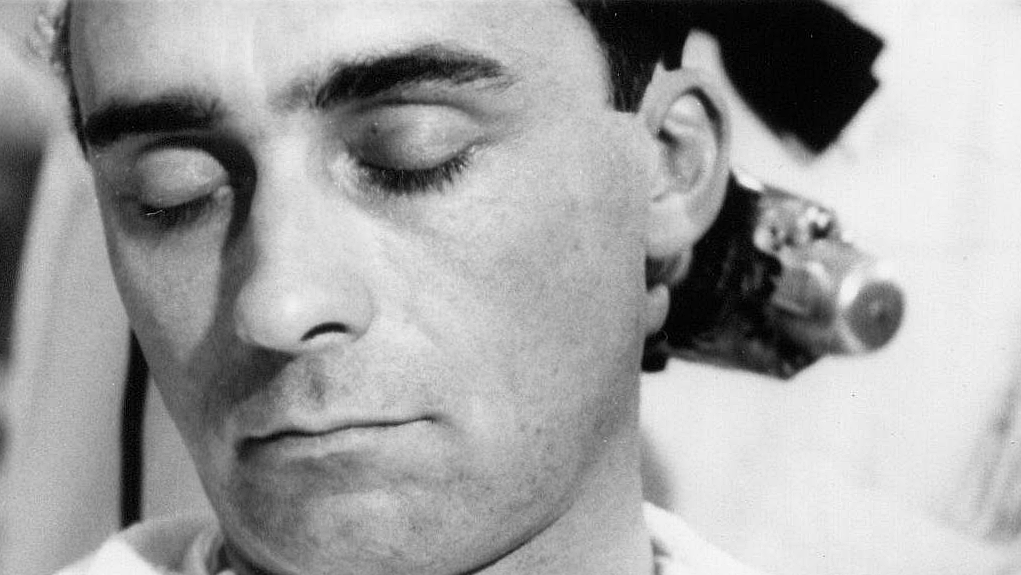
Govert Miereveld (Senne Rouffaer) having his hair cut. DPs: Ghislain Cloquet & Roland Delcour.
A teacher, enthralled by one of his students, gets lost after she graduates.
– Govert Miereveld
Heavy and light, absurd and profane. An absolute recommendation.